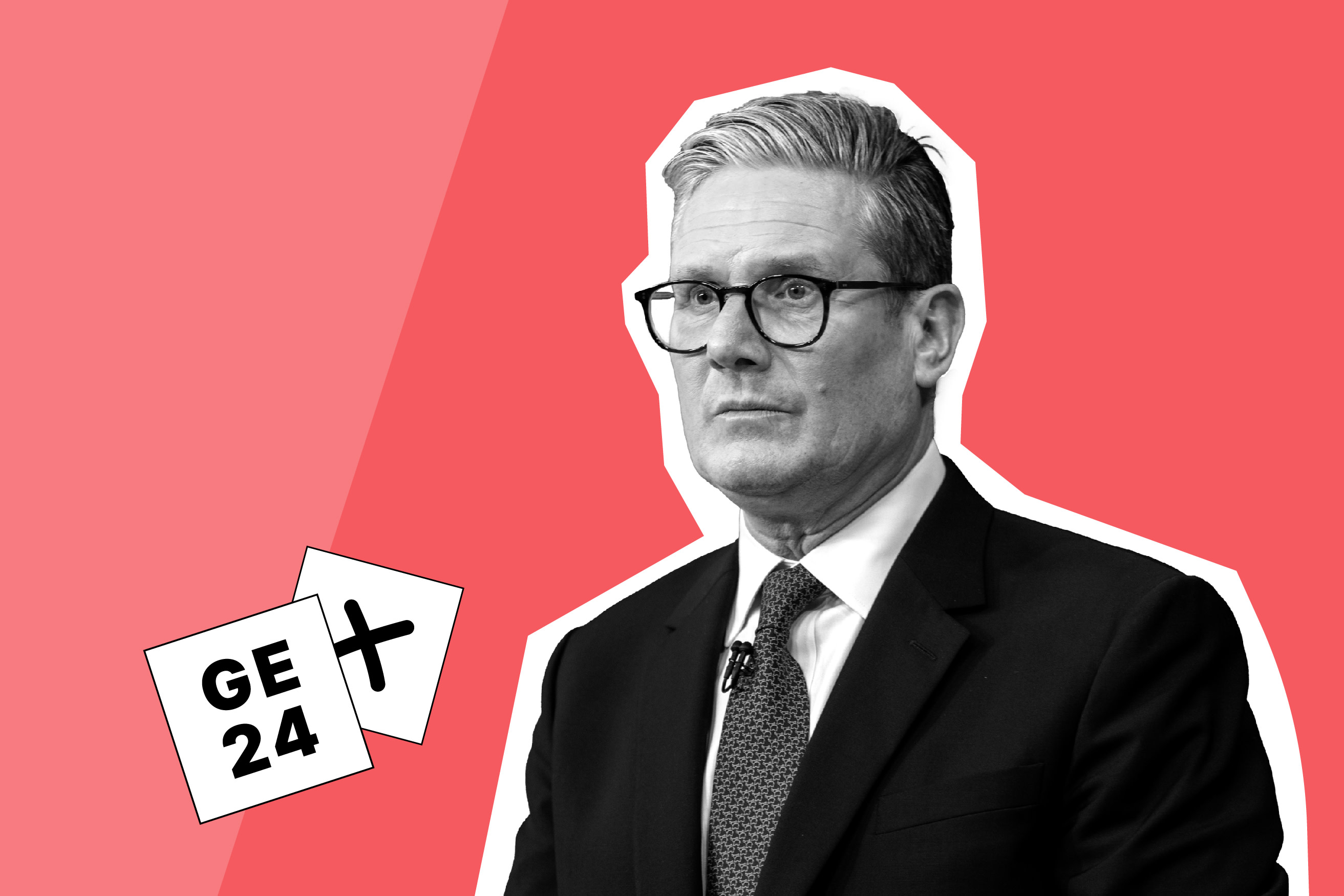Starting at home in the UK, Keir Starmer and the Labour party secured a healthy majority, with a total of 412 seats. While Rishi Sunak and the Conservative party secured just 121 seats, their lowest numbers since 1832.
There were small wins for the Liberal Democrats with 72 seats, and for Reform who gained five seats.
What does the general election results mean for investors?
New Prime Minister Keir Starmer made a number of pledges in Labour’s manifesto that could impact investors.
He’s pledged to keep the triple lock pension and ruled out increasing income tax, National Insurance and VAT for most people. Although he hasn’t ruled out changes to capital gains tax (CGT) or pension tax relief.
This article isn’t personal advice. If you're not sure if an investment is right for you, ask for financial advice. All investments and any income from them can rise and fall in value, so you could get back less than you invest. Past performance isn’t a guide to the future.
What’s happening in the rest of the world?
The biggest and longest election of the year happened in India. It’s the world’s most populated country with around 969 million people registered to vote over six-weeks.
Prime Minister Narendra Modi was up for a historic third term with his Bharatiya Janata Party (BJP). They were predicted to hold their outright majority, but unexpected setbacks meant they didn’t get the 272 seats needed. Originally, they were expecting close to 400.
Modi stayed in charge though, pulling upon allies in the National Democratic Alliance to form a government.
It’s expected Modi will now find it harder to make changes in areas like labour and land use. Modi had been focussing on this to try and move investment away from China.
The outcome in France is still unclear. The current president, Emmanuel Macron, called a snap election in June. And after two rounds of voting, no party had enough seats to form a government, resulting in a hung parliament.
Marine Le Pen’s far-right Rassemblement National was expected to win the most seats after the first round but unexpectedly came in third place.
The left-wing Nouveau Front Populaire bloc and President Emmanuel Macron’s centrist Ensemble alliance did manage to secure more seats, just not enough to form a government.
Discussions are ongoing as parties look to form a coalition. But given the strong and polarising views of each party, this is proving difficult.
In Taiwan’s election, the ruling Democratic Progressive party won an unprecedented third term as voters remained anti-China.
What’s still to come?
Arguably one of the most important elections of the year is still to come in the US.
President Biden is expected to have a much-anticipated rematch with former president Donald Trump in November.
However, there are growing calls for Biden to withdraw from the race after a disappointing first debate with Trump, where he often struggled with responses. This was a chance for Biden to reassure voters that, despite being the oldest US president so far, he could handle another four years. Even with the on-going pressure, Biden has refused to pull out.
After this first debate, both Biden and Trump have given indications on what they’re planning to do if they win. Everything from tax, immigration, and climate action is up for debate with the two having some very conflicting views.
How have global stock markets performed?
Global stock markets have seen positive results over the 12 months to the end of June 2024, rising 20.61%*.
The Indian stock market was one of the best performers, returning 35.67%. It’s seen rapid growth over the last year and kept the title for world’s fastest growing economy. In the last three months of 2023 the country expanded 8.4% compared to the previous year.
The Chinese stock market was one of the worst-performing, returning -0.87%. It’s still struggling with a range of issues that are keeping investors cautious.
China’s battling weak consumer confidence and this is leading consumers to spend less and save more. There are also issues in the property market where demand has fallen, causing some of the world’s biggest property developers to go bust.
The Chinese government have taken various measures to try and stimulate growth. There are signs this might be starting to have an effect. Over the last three months the Chinese stock market has returned 7.09% as investors move back into the region. This is over a short time though.
President Xi is at a crossroads of pro-business stimulus to help push the economy forward, but possibly having to roll back some previous party policies to do it.
On a sector level, the technology sector performed the best over the last 12 months, returning 38.80%. It’s benefited from advancements in artificial intelligence (AI) and the opportunities it could create. Consumer staple stocks lagged the wider market, returning just 2.52%.
Five year stock market performance
How have our Wealth Shortlist funds performed?
Global funds on the Wealth Shortlist delivered mixed performance over the past year, some faring better than others.
In 2022, funds investing in companies undergoing a turnaround or those focused on paying a dividend, (or ‘value’ focused funds), generally performed better.
But in 2023 the market rotated and those investing in companies capable of above-average earnings growth (or ‘growth’ funds) typically performed better. And companies thought to benefit from advancements in AI performed very strongly over the year.
So far this year has seen a mix of growth and value stocks doing well. This tends to be seen as good news for fund managers looking to find the best opportunities they can.
A year is a short time to assess the skills of a fund manager though. Managers with different strengths, styles and areas of focus will perform differently over time.
Investing in funds isn't right for everyone. Investors should only invest if the fund's objectives are aligned with their own, and there's a specific need for the type of investment being made. Investors should understand the specific risks of a fund before they invest, and make sure any new investment forms part of a long-term diversified portfolio.
For more details on each fund and its risks, please see the links to their factsheets and key investor information below.
Artemis Global Income was the best-performing global sector fund on the Wealth Shortlist over the past 12 months.
The fund, managed by experienced investor Jacob de Tusch-Lec, returned 31.90%* versus 12.98% for the IA Global Equity Income peer group.
We like de Tusch-Lec’s contrarian approach to investing, though it means the fund can be invested differently to peers.
Our analysis suggests de Tusch-Lec’s stock selection has been the main driver of returns over this time. Particularly, selections in Europe and Japan, as well as investments in industrials and financials, have all benefited performance.
The fund can invest in smaller companies as well as emerging markets which can increase risk. The manager can also use derivatives which can also increase risk.
Troy Trojan Global Income was the weakest performing global sector fund on the Wealth Shortlist returning 4.16%.
James Harries, the fund’s manager, has a stellar long-term record in sheltering investors’ money during tougher times for markets. Harries' focus on high-quality companies and a more conservative investment approach means we expect the fund to hold up relatively well when markets fall.
In contrast, we expect the fund to lag the peer group when markets rise quickly. This has been the case recently with markets rallying, particularly in the US and the technology sector.
A focus on companies in the consumer staples sector has also been a headwind. The manager believes this can offer steadier growth potential compared with sectors like tech where growth can be volatile.
We still rate the team’s disciplined investment approach – it’s been used across a range of funds over the years with good outcomes.
The fund can invest in emerging markets which can add risk as well as use derivatives. It can also be concentrated, meaning a few stocks can impact performance.
Annual performance growth
June 2019 To June 2020 | June 2020 To June 2021 | June 2021 To June 2022 | June 2022 To June 2023 | June 2023 To June 2024 | |
|---|---|---|---|---|---|
Artemis Global Income | -9.99% | 33.19% | 1.51% | 4.00% | 31.90% |
IA Global Equity Income | -2.51% | 21.58% | 0.96% | 9.14% | 12.98% |
Trojan Global Income | 6.30% | 7.28% | 7.32% | -0.62% | 4.16% |








